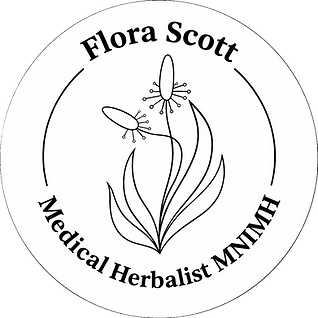


What is Herbal medicine?
Herbal medicine is medicine made from plants.
Herbal medicine has been used effectively all over the world for thousands of years and has a long history in the UK. Herbal medicine is still the main source of medicine used by up to 70% of the world’s population who rely on local medicinal plants for health.
The modern practice of Western medical herbalism combines traditional plant knowledge with scientific research and medical practice.
Organic compounds in plants have pharmacological action in the human body and aid us in recovery from illness. Herbs can be taken in the form of tinctures, herbal teas, powders or topical applications to apply to the skin.
.


What is a Medical Herbalist?
Medical herbalists are trained in plant medicine to prescribe medicinal plants to treat health concerns. They are trained in the same diagnostic skills as a GP and can safely prescribe herbal remedies that can be taken along side other medications and treatments.
Professional herbalists undergo thorough training which covers clinical diagnosis, physical examinations, anatomy, physiology, pathology, nutrition, botany, as well as biochemistry and pharmacology.
Herbalists take a holistic approach to treating illness and strive to treat the underlying cause of disease rather than merely the symptoms. They can prescribe personalised and bespoke remedies tailored to the individual and recognise that no two patients are alike.
What do herbalists treat?
Herbalists can treat patients with both acute and chronic conditions including but not limited to some of the following common conditions:
. The Skin: eczema, psoriasis, dermatitis & acne
. Digestion: Indigestion, IBS, Chron's, colitis
. Reproductive system: period pain, PCOS, menopausal symptoms, endometriosis
. Urinary system: cystitis
. Joints and muscles: arthritis, strains, fibromyalgia
. Allergies: hay fever, asthma, rhinitis
. Circulation: raised blood pressure, varicose veins, Raynaud's
. Nerves: anxiety, depression, insomnia, headache & migraines, panic attacks, fatigue
. Respiration: flu, bronchitis, sore throat, tonsilitis, sinusitis

